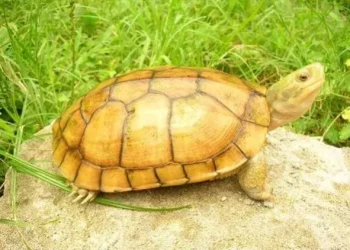The idea that a tortoise might live for 400 years has captured the imagination of many, leading to myths, legends, and a fascination with the longevity of these ancient reptiles. The question of whether a tortoise can truly reach such an astonishing age involves delving into both biological science and historical anecdotes. This article aims to explore the scientific understanding of tortoise longevity, examining their life spans, the factors influencing their age, and the realistic potential for reaching extraordinary ages.
Understanding Tortoise Longevity
Tortoises are renowned for their impressive life spans compared to other animals. Various species of tortoises exhibit different longevity patterns, but many are known to live well beyond the typical life expectancy of most pets. To evaluate the possibility of a tortoise living for 400 years, it is crucial to understand the general principles of tortoise longevity and the factors contributing to their long lives.
Historical Records and Anecdotal Evidence
The claim that tortoises can live for 400 years often originates from anecdotal evidence and historical records. For instance, the famous Galápagos tortoise named Lonesome George, a Pinta Island tortoise, lived to about 100 years before his death in 2012. While this age is impressive, it falls short of the 400-year mark.
Similarly, historical records and folklore have mentioned extraordinarily long-lived tortoises, but these claims are difficult to verify with scientific accuracy. Often, these accounts are based on anecdotal observations rather than documented evidence, making it challenging to ascertain their validity.
Factors Influencing Tortoise Longevity
To determine whether a tortoise can live for 400 years, it’s essential to understand the factors that contribute to their longevity. Several biological, environmental, and care-related factors play a role in determining a tortoise’s lifespan.
Biological Characteristics
Metabolism and Growth Rates Tortoises generally have slow metabolisms, which is believed to contribute to their long lifespans. A slower metabolism means that their bodies age more slowly, which can potentially extend their lives. This characteristic is particularly evident in giant tortoises, which exhibit slower growth rates and extended periods of maturation.
Genetic Factors Genetics play a significant role in determining the lifespan of tortoises. Different species have varying life expectancies based on their genetic makeup. For example, the Aldabra giant tortoise and the Galápagos tortoise are known for their long lifespans, often reaching 100 years or more in captivity. However, reaching the 400-year mark is unprecedented and would require a unique set of genetic factors.
Disease Resistance Tortoises are generally resilient to many diseases that affect other animals. Their robust immune systems help them resist infections and illnesses that could otherwise shorten their lifespans. This disease resistance contributes to their overall longevity, but it is not necessarily a guarantee of a lifespan as long as 400 years.
Environmental Factors
Habitat and Diet The environment in which a tortoise lives plays a crucial role in its longevity. In their natural habitats, tortoises often have access to a varied diet that supports their health. In captivity, providing a balanced and species-appropriate diet is essential for ensuring the tortoise’s well-being and longevity.
Climate and Temperature Tortoises are ectothermic, meaning they rely on external temperatures to regulate their body heat. The climate in their natural habitat influences their activity levels and metabolic rates. Extreme temperatures, either too hot or too cold, can adversely affect a tortoise’s health and potentially shorten its lifespan.
Predation and Environmental Threats In the wild, tortoises face threats from predators, environmental hazards, and competition for resources. These factors can impact their lifespan, particularly in younger individuals. In captivity, these risks are minimized, allowing tortoises to live longer, healthier lives.
Care and Husbandry in Captivity
Enclosure and Space Providing an appropriate enclosure with adequate space is vital for a tortoise’s health and longevity. A well-designed habitat that mimics their natural environment promotes physical activity and mental stimulation, contributing to overall well-being.
Healthcare and Veterinary Support Regular veterinary check-ups and prompt treatment of any health issues are crucial for maintaining a tortoise’s health in captivity. Preventive care, including proper nutrition, parasite control, and monitoring for signs of illness, helps ensure a longer, healthier life.
Social Interaction and Enrichment While tortoises are generally solitary animals, providing enrichment and interaction can contribute to their mental and emotional well-being. Enrichment activities, such as offering a variety of substrates, hiding places, and sensory stimulation, can enhance their quality of life.
Current Scientific Understanding and Lifespan Records
The current scientific understanding of tortoise longevity suggests that while tortoises can live impressively long lives, the idea of a 400-year lifespan remains speculative.
Documented Lifespans
Galápagos Tortoise The Galápagos tortoise is one of the longest-lived tortoise species, with individuals commonly reaching 100 to 150 years in captivity. Some reports suggest that Galápagos tortoises may live up to 175 years, but reaching 400 years is not supported by scientific evidence.
See Also: Aldabra vs Galapagos Tortoises: What Is the Difference?
Aldabra Giant Tortoise Similarly, Aldabra giant tortoises are known to live for 100 to 150 years. The oldest recorded Aldabra giant tortoise lived to be 255 years old, but there are no verified records of tortoises reaching 400 years.
Russian Tortoise The Russian tortoise, a smaller species, has a typical lifespan of 40 to 50 years. Although long-lived compared to many other reptiles, this species does not approach the 400-year mark.
Scientific Research and Longevity Studies
Research into tortoise longevity often focuses on understanding the mechanisms behind their extended lifespans. Studies have investigated factors such as metabolic rates, cellular aging, and disease resistance. While these studies provide valuable insights into why tortoises live long lives, they do not support the notion of a 400-year lifespan.
Research into the genetics of aging in tortoises is ongoing, and scientists continue to explore how these factors contribute to their longevity. However, current evidence suggests that while tortoises are indeed long-lived, reaching 400 years is beyond the known lifespan of any documented tortoise.
Myths and Misconceptions
The idea that tortoises can live for 400 years is likely rooted in myths, legends, and misinterpretations of historical records. Several factors contribute to these misconceptions:
Historical Records and Legends Historical accounts and legends often exaggerate the ages of animals, including tortoises. These stories, while intriguing, are not always based on scientific evidence and may contribute to the myth of a 400-year lifespan.
Misidentification of Tortoise Species In some cases, reports of extraordinarily long-lived tortoises may involve misidentification of species or inaccurate age estimates. Ensuring accurate identification and documentation is crucial for reliable records.
Exaggeration and Anecdotes Anecdotal evidence, such as stories passed down through generations, can sometimes exaggerate the lifespans of animals. These stories may be based on partial truths but are not necessarily supported by scientific data.
Conclusion
While the idea of a tortoise living for 400 years is a fascinating notion, it remains within the realm of myth and speculation rather than scientific fact. Current scientific understanding and documented records indicate that tortoises, although remarkably long-lived, typically do not reach the 400-year mark.
Tortoises are indeed impressive in their longevity, with many species living well over 100 years. Factors such as metabolism, genetics, disease resistance, and environmental conditions all contribute to their extended lifespans. However, the extraordinary age of 400 years remains unsupported by scientific evidence and documented records.
The study of tortoise longevity continues to provide valuable insights into aging and longevity in reptiles. While we may not yet have definitive proof of a tortoise reaching 400 years, the ongoing research and fascination with these remarkable animals continue to deepen our understanding of their biology and lifespan.
In summary, while tortoises are undeniably long-lived creatures with impressive lifespans, the idea of a tortoise living for 400 years remains a captivating myth rather than a verified reality.
Related Topics:
























